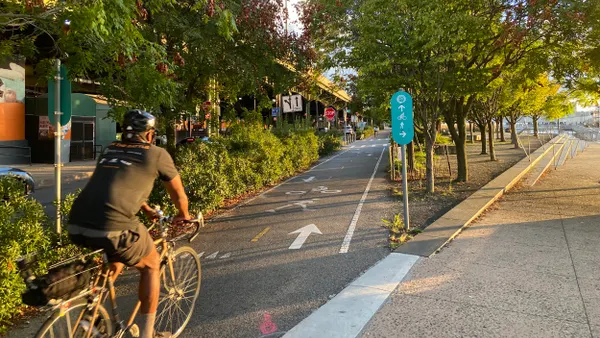Fear about autonomous driving technology tends to subside after a person experiences it for themselves, a J.D. Power study found.
While self-driving technology has been slow to take hold with robotaxi companies, including Waymo, and Cruise consistently posting losses, 76% of study respondents who rode in an autonomous vehicle reported confidence in the technology versus 20% who had never experienced a driverless ride.
The study suggests that consumers may warm to driverless vehicles as familiarity grows with the technology beyond test markets.
“The robotaxi segment is still anyone’s game, given that most people are not familiar with robotaxi brands and haven’t formed a clear associative imagery,” Kathleen Rizk, senior director of user experience benchmarking and technology at J.D. Power, said a press release. Other active robotaxi businesses include May Mobility, Motional and Zoox.
The fledgling industry has faced hurdles to widespread commercialization, including an incident in San Francisco in October 2023 in which a pedestrian was severely injured after being struck by a GM subsidiary-owned Cruise robotaxi.
“We believe in autonomy in general, but I think we want to make sure we're investing in autonomy as efficiently as possible,” GM CEO Mary Barra said during the company’s Q3 earnings call on Oct. 22.
Tesla CEO Elon Musk said during his company’s Q3 earnings call on Oct. 23 that its Cybercab and Robovan robotaxi service could receive regulatory approval in California and Texas sometime next year.
In September, ridesharing giant Uber announced that it would launch self-driving vehicles in Austin, Texas, and Atlanta in 2025 in partnership with Waymo. The fully automated fleet would join those cities’ human Uber drivers. Uber’s deal with Waymo follows its August announcement to partner with Cruise next year to deploy autonomous vehicles on Uber’s platform.
J.D. Power surveyed 733 riders and non-riders in Dallas, Las Vegas, Los Angeles, Phoenix and San Francisco, as well as a national sample of 3,000 respondents that included those living outside the cities in in which robotaxi service has already launched.
The study explored five categories relevant to the robotaxi experience: comfort and convenience, initiating the ride, availability and cost of the ride, experience of riding in the vehicle and the vehicle’s technology. Users rated the overall experience of riding in a robotaxi at 8.53 points on a 10-point scale.
The highest scoring category was the vehicle’s technology, with the robotaxi’s ability to obey the law scoring the highest of all technological attributes, according to J.D. Power.
Survey respondents named safety as the most important factor for a successful robotaxi experience, with 78% of riders and non-riders prioritizing a safe ride. Respondents also noted that they desire robotaxi safety features such as emergency call buttons and location sharing.











